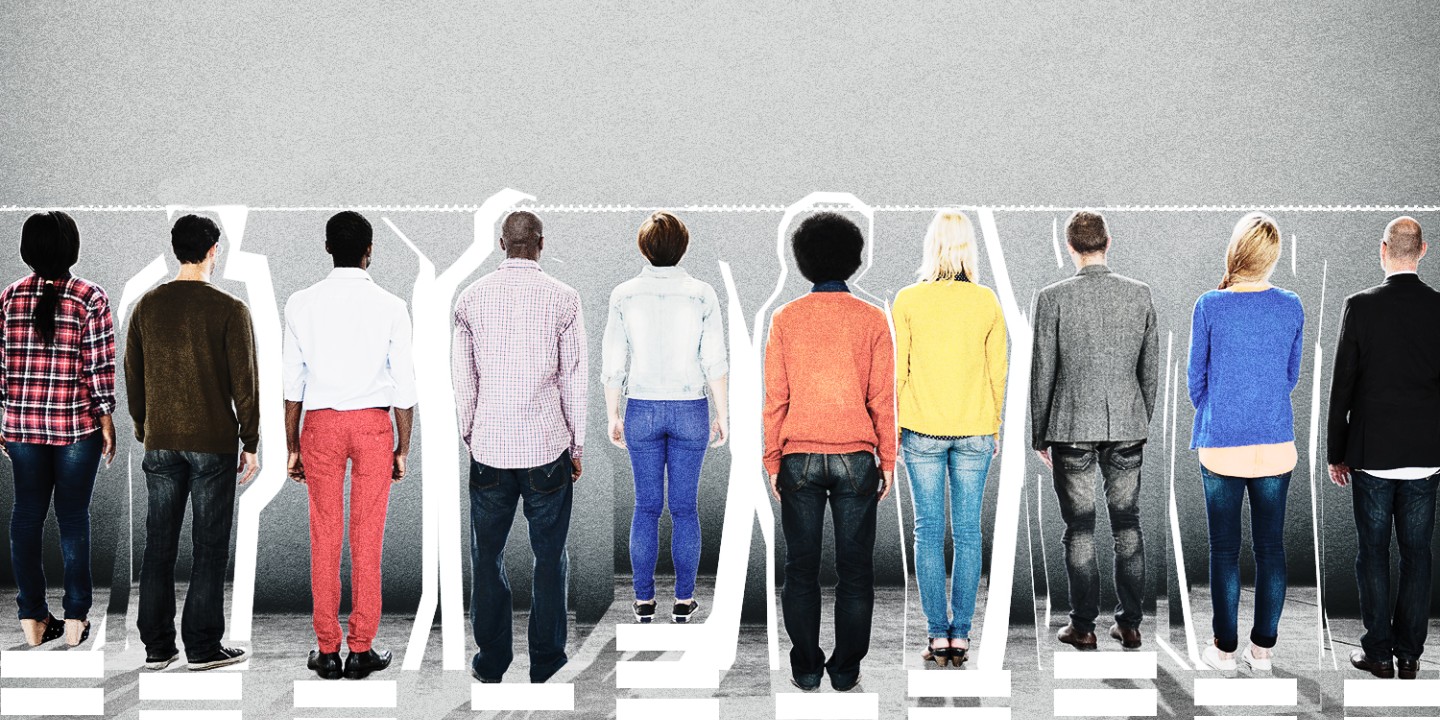Why church marketing won’t work with Gen Z
Equity requires people with power giving some of it up. What if we applied this principle to young adult ministry?

Century illustration (Source image: Rawpixel / iStock / Getty)
Occasionally, a church will ask me to come help them with what I will call their youth problem: they are aging rapidly (or at the pace we all age, I guess), they struggle to attract young people, and they have a lot of passion for younger generations but not a lot of skill. To their credit, they want to do the right thing—and I believe for the right reason—but their sense of how to make this happen in a meaningful way remains underdeveloped. And so they call me—the “rapping pastor”—because I’m good at this sort of thing and because when we have a problem we don’t believe we can handle on our own, we call consultants and plumbers and electricians and people who understand the hippity hoppity generation. Smart!
I always ask one question as part of my preliminary discernment. It isn’t “Why aren’t they coming?” or “Where are they going instead?” I’ll tell you what it is in a moment (or go to the end to read it now), but as someone who’s studied youth ministry origins—from Don Bosco in 19th–century Italy to the “mall” models that many megachurches now employ and that smaller churches can’t afford to employ, making them feel like failures—I know that the fumbling around we are experiencing with the youth isn’t about a lack of fun stuff to do. It is more centrally about a lack of relationship, a lack of desire to be in relationship, and an inability to treat youth as our equals (or as better than us, as Jesus suggests in Mark 10:13–16).
Read our latest issue or browse back issues.
In other words, it’s not a marketing problem—even though many ministries treat it as such and spend a lot of energy and resources on the fringes of “cool” and “relevant.” It’s an equity issue.
Equity is one of those words that has gained traction in the public lexicon without generally being used correctly. The word points to how people’s lives can be improved by having the same access to resources, to the sort of basic fairness that can mean the unequal distribution of resources to people on different journeys through the same system (that’s why equity is different from equality). That’s hard work! But in popular usage it’s been boiled down to mean something like “diversity” or “inclusion,” which doesn’t say much and is probably the reason so many corporate DEI initiatives have stalled. What a bank typically means by “equity initiatives” is that they want to set up shop in a Black neighborhood, hire Black employees so it doesn’t feel weird, and create a new pipeline of Black customers. But when those new customers don’t have the same access to loans—or have to pay more to take them out—then we understand that equity really meant “urban marketing.”
Churches operate the same way. We want more of a certain type of people because it feels connected to our sense of faithfulness, so we’ll work hard to show them there’s a place for them here. But when they come through the door, they are expected to do all the translating and figuring out of what the heck is going—because church liturgies can be strange and inaccessible to newcomers—with the good news that if they do the work of becoming more like us, then they will be fully welcomed. Sounds like marketing to me.
Equity, on the other hand, is less concerned with getting them in the door than with what happens to create a sense of safety and fairness once they arrive. Because a room half full of Black people (or a quarter full? What are you dreaming over there?) is only impressive if they get to experience their ethnicity and its idiosyncrasies in the same way most White people get to: as a norm, as simply the way things are, without much effort at all.
Many youth ministries have trouble getting young people through the door—a marketing problem. But what’s more important is what we do once they arrive—an equity problem. Because if we need for them to act as adults, then we really haven’t done anything besides create a space for them to be more like us. And if they have to do all the work to get comfortable inside of our spaces, that’s not equity either. Equity is about the people with the power giving up some so it can be shared better. We often think equity is about giving them the space to do the work, when it’s really us who should be doing the work, not them.
And while criticism of places like Harley-Davidson and Ford Motor Company for retreating from corporate DEI practices is well placed, many of our churches aren’t doing much better. We haven’t stopped marketing, but perhaps we have stopped interrogating our systems to ensure that the people we want to come will feel safe and honored there and not have to do all the work. Think of how difficult it would be to do a hip-hop themed worship next Sunday (or the fourth Sunday of every month) or how puzzling it would seem to sing, “Lift Every Voice and Sing” in a month not named February, and you are closer to understanding how far we are from this thing called equity, where everyone truly has an equal opportunity.
It’s easier to simply focus on marketing. That’s what the corporations do at every festival and parade, as a way of reminding you that they’d like your business, too. But we are the church, and it’s our business to create the beloved community, where everyone feels whole and dignified and humanity flourishes in the sight of God. And that “everyone” means we need to be in community with people that look, think, and live differently than we do. Most of our spaces have taken that up as a marketing problem. Almost assuredly, it is something much deeper.
What question do I ask when I’m deciding whether I want to try to help with a church’s youth problem? “What are you going to do once I leave?”






